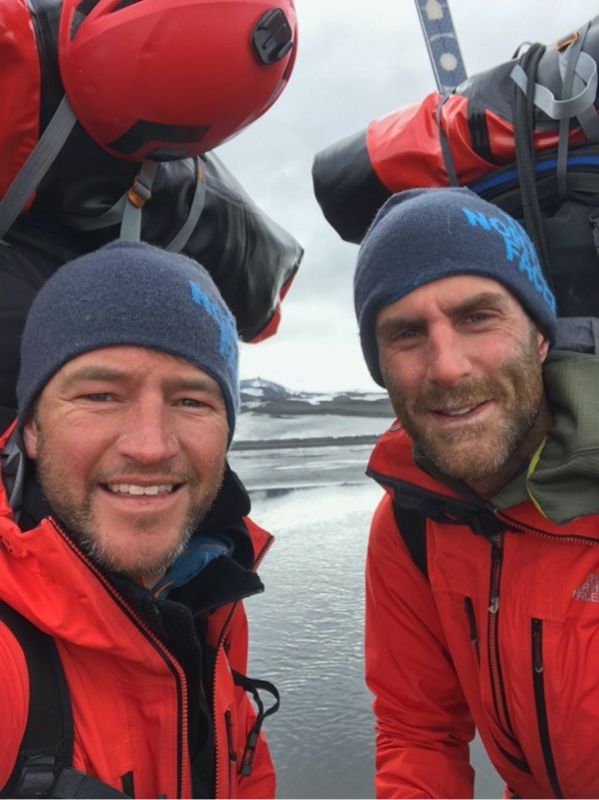
What did you aspire to be when you were a child? An astronaut? An actor? A musician? What about a Polar explorer? Well for Dr Gareth Andrews and Dr Richard Stephenson, the stories of Ernest Shackleton and Roald Amundsen sparked an early passion for Antarctic exploration. That is now becoming their reality, as they are deep into preparation for The Last Great First, which commences in October 2021, Covid permitting. Back in 2013, an expedition in the Magnetic North Pole sparked an idea, and now eight years later, that idea is finally coming to fruition.
But how do two doctors prepare for the savagery of a 110-day expedition across 2,600km of -40C Antarctic ice? Well, it begins with their profession, explained Gareth. Imagine operating within the high stress environment of a hospital, completely covered with PPE, making communication extremely difficult. Lives are saved because people follow systems, and they can trust the other people in their team.
Gareth went on to outline the critical factors of success for such an expedition. Food is an essential component of the trip to just “keep the engine going” for 110 consecutive days of ten-hour sledding days. Gareth and Richard’s diet will be scrutinised down to the tiniest detail by team dietitian Ashleigh Brunner, ensuring all macronutrients, micronutrients and vitamins are contained within each meal. And water? Well, it must be boiled every morning and kept close to the body to prevent it freezing. These are just a few of the details that will ensure the trip is as smooth as possible.
And the training? Gareth and Richard have been working with Joe’s Basecamp (a training centre in Brookvale) to ensure they are physically prepared to endure the inhospitable conditions of the trip. In particular, the crossing of the Transantarctic mountains between days 20 and 30, where they’ll be reaching altitudes of up to 4,000m. Gareth has also been preparing by dragging tyres across the sands of local beaches, mimicking the conditions that he will be required to drag the 200kg sled across. Injuries are a concern, with the strain of the sled leading to niggling shoulder and knee pain, and the extended on-foot travel causing blisters aplenty. Even the smallest injury can be physically debilitating and morally draining.
But more than just physical, the trip will require significant mental conditioning. The two rely on positive adaptive coping strategies to control what they are able to control, and complete the trip ahead, one day at a time. There will be an intricate Search and Rescue Plan mapped out in case of any emergencies, such as a GPS that can track Gareth and Richard within metres, plus 24hour communications with the base camp.
The team are a driven bunch, spurred on by the overwhelming accomplishment of achieving something no one has ever done before. The team’s Community Partner is Scouts, and together they hope to “light the spark” amongst the next generation of explorers.
The team will be collecting climate data on behalf of the Antarctic Science Foundation, as well as human performance data for the Australian Antarctic division, hoping to expand the horizons of human survival, and seeking to derive as much good as possible from this phenomenal journey.
To support Gareth and Richard in completing their trans-antarctic journey, go to thelastgreatfirst.com.au
